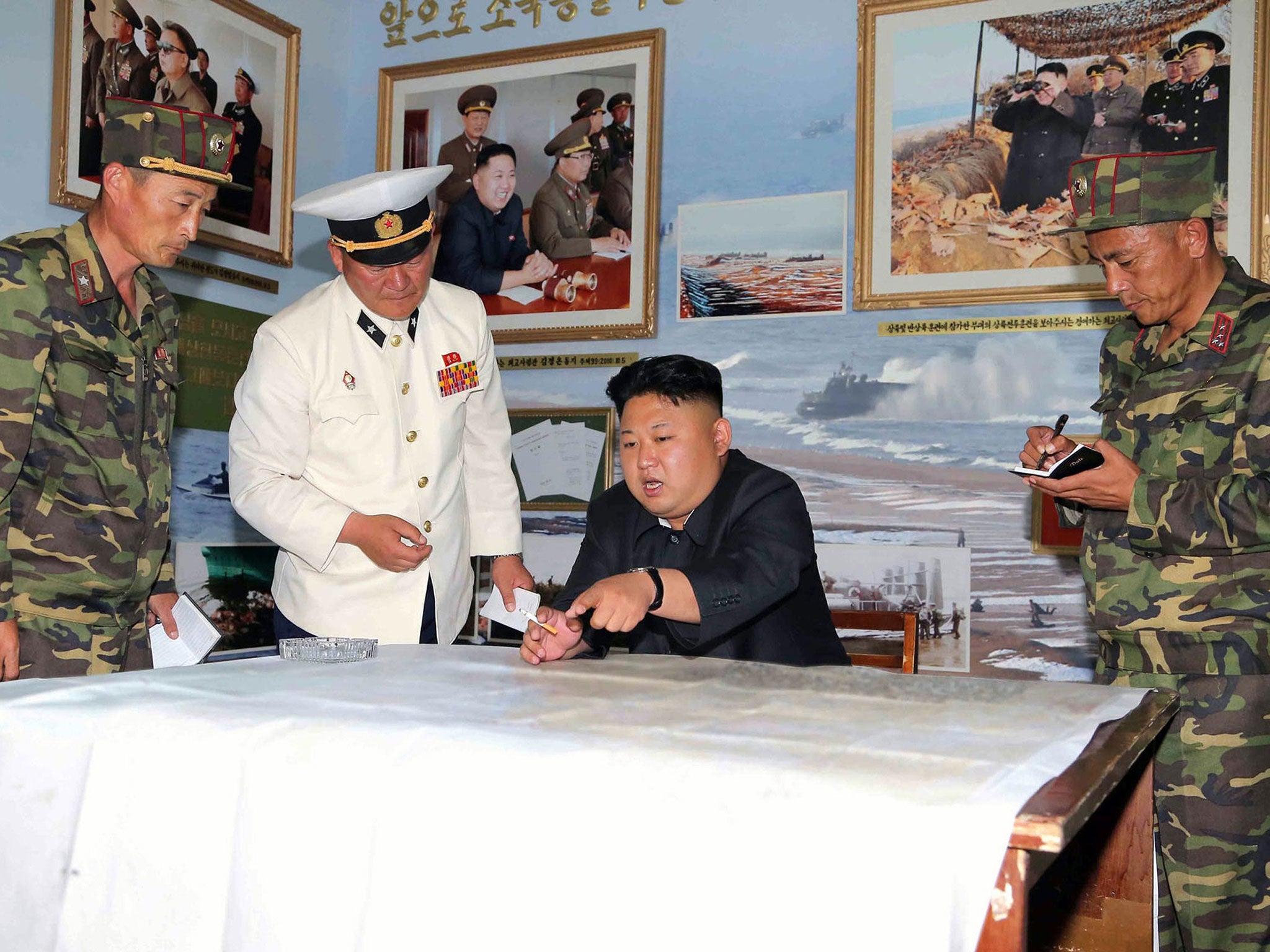North Korea tests new precision guided missiles
South Korean defence officials said the projectiles fired from an eastern port city flew about 120 miles before harmlessly landing off its east coast

Your support helps us to tell the story
From reproductive rights to climate change to Big Tech, The Independent is on the ground when the story is developing. Whether it's investigating the financials of Elon Musk's pro-Trump PAC or producing our latest documentary, 'The A Word', which shines a light on the American women fighting for reproductive rights, we know how important it is to parse out the facts from the messaging.
At such a critical moment in US history, we need reporters on the ground. Your donation allows us to keep sending journalists to speak to both sides of the story.
The Independent is trusted by Americans across the entire political spectrum. And unlike many other quality news outlets, we choose not to lock Americans out of our reporting and analysis with paywalls. We believe quality journalism should be available to everyone, paid for by those who can afford it.
Your support makes all the difference.North Korea said today that leader Kim Jong Un has guided the test launches of its newly developed precision guided missiles.
It was a possible reference to three short-range projectiles South Korean officials say the North fired toward its waters a day earlier.
South Korean defence officials said the projectiles fired from an eastern port city flew about 120 miles before harmlessly landing into the waters off its east coast.
The exact type of those projectiles and the North's intentions were not immediately known.
Along with its nuclear programme, North Korea's missile programme is a major regional threat, and the North's state media said today that the country tested what it calls "cutting-edge ultra-precision tactical guided missiles" and Kim watched the tests with top deputies and was satisfied with the results.
The North did not say when the launches took place or how many missiles were fired, but they are probably the projectiles that Seoul says North Korea fired yesterday as there have been no other such reported firings by North Korea in recent days.
South Korean defence ministry spokesman Kim Min-seok said today North Korea has been trying to upgrade its large-calibre multiple rocket launch systems in recent years and that those weapons' range has been slightly and gradually increased in each test-launch.
The North Korean media dispatch called the latest missile launches "significant" as they were made at a time when it is bolstering its national defence because the US and South Korea are "going extremely reckless in the moves to isolate and stifle (North Korea) and unleash a war of aggression".
Short-range test firings by North Korea are not unusual, but a barrage of missile and artillery tests earlier this year boosted tension between the rivals.
A North Korean artillery attack in 2010 killed four South Koreans on a front-line Yellow Sea island.
North Korea has in recent months threatened South Korea's president, calling her a prostitute, and the South has vowed to hit North Korea hard if provoked.
North Korea's rising anger coincided with annual joint military exercises by the US and South Korea and a visit to Seoul by President Barack Obama.
North Korea also test-fired two medium-range ballistic missiles and exchanged artillery fire with South Korea near a disputed boundary in the Yellow Sea.
Yesterday, North Korea's army accused South Korea of firing shells into the North's waters near the sea boundary.
Both Koreas routinely conduct artillery drills near the maritime boundary, a scene of several bloody skirmishes in recent years.
The Korean Peninsula is still technically in a state of war because the 1950-53 Korean War ended with an armistice and not a peace treaty. The US keeps about 28,500 troops in the South.
PA
Join our commenting forum
Join thought-provoking conversations, follow other Independent readers and see their replies
Comments